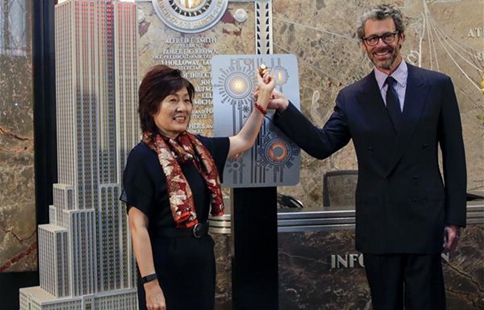BEIJING, Oct. 5 (Xinhua) -- Cruising ability, battery charging and vehicle interiors are the biggest concerns for Chinese consumers when purchasing new energy vehicles (NEVs), according to a recent survey by China Association for Quality.
Consumers are most interested in NEVs with a range of more than 300 km, according to Xia Bin, a researcher at the association.
If manufacturers can increase the range to 400 kilometers, the NEV market would see rapid expansion, he said.
In June, Beijing Automotive Group (BAG) launched its fully-electric vehicle EU400 which has a long battery life that enables the vehicle to run for up to 460 km at a speed of 60 kph.
However, the driving range of most NEVs currently on road is only around 200 kilometers.
About 800,000 NEVs have been sold in China so far this year, according to Lu Hao from BAG.
Last year, that figure was just 507,000. Sales of pure electric vehicles have surged 65.1 percent year on year to 409,000, accounting for 80 percent of NEV sales.
More than half of the world's NEVs are on the roads of China, making the country the world's biggest NEV market.
The survey also found that consumers are demanding more and better quality charging facilities as the amount of NEVs on the roads increases.
Yang Diange, Dean of Automotive Engineering at Tsinghua University, said public charging stations, also known as charging piles, are not being utilized effectively due to the incompatibility of different charging systems, the mismatch between vehicles and charging piles as well as the high costs of charging.
Urban planning, city and property management departments need to be more friendly to NEVs, said Yang, who is also the vice director of the State Key Laboratory of Automotive Safety and Energy.
The survey showed that about 66 percent of NEV owners would prefer to purchase NEVs as their second vehicles.
Lin Cheng, vice director of the National Engineering Laboratory for Electric Vehicles at Beijing Institute of Technology, said technical upgrades are the way for local industry to break the bottlenecks.
Electric vehicle research should target sustainability, high performance and more intelligence, he said.

















